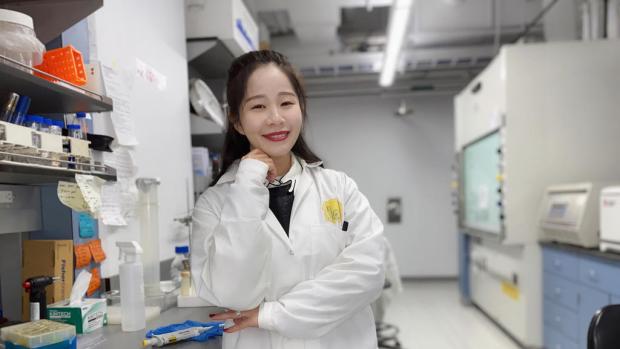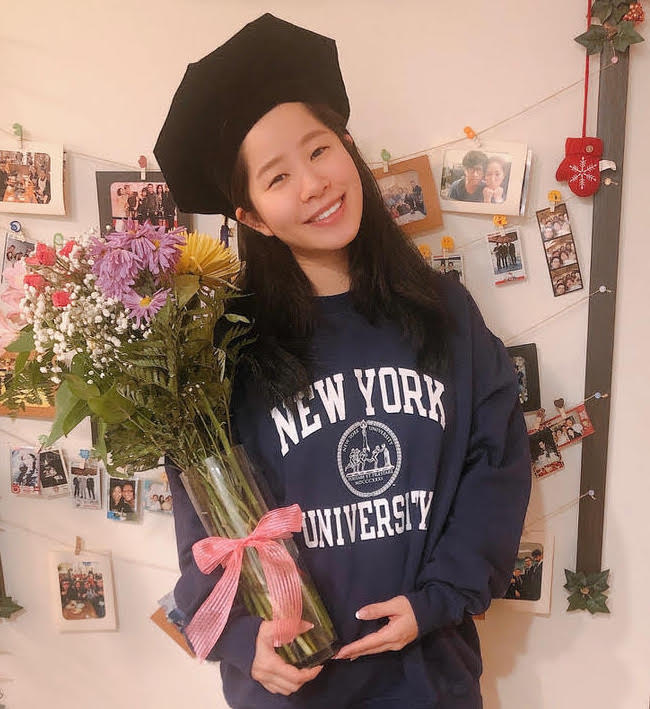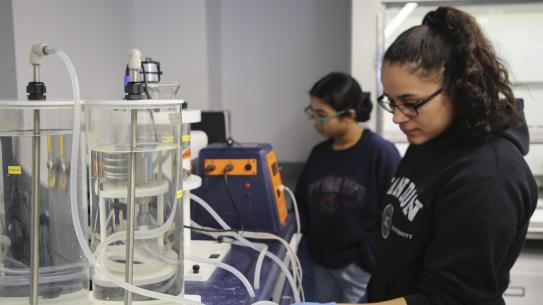What happens when a materials scientist walks into a protein engineering lab?
According to alum Yao Wang, the answer is an incredible academic journey

Yao Wang, who was awarded her Ph.D. in Chemical and Biomolecular Engineering from NYU Tandon in January 2021, has had a few experiences in her life that seemed almost cinematic.
One such moment came when she was finally accepted as a doctoral student in Professor Jin Kim Montclare’s Lab for Protein Engineering and Molecular Design. Her path to that lab had, admittedly, not been linear. While she had always loved biology in high school, she wanted to expand her horizons in college, and as a student at the Beijing Institute of Fashion Technology, she chose to focus on polymer materials. An international interlude at Australia’s Monash Institute of Pharmaceutical Science, however, rekindled her interest in human health and the possibilities of a career that would allow her to make an impact in that realm.
She ultimately returned to Beijing to finish her bachelor of engineering degree and plan her next step. That step took her to the University of Florida, where she had been offered a scholarship to study for an M.S. in materials science and engineering.
In what could be a segment from a Hollywood rom-com, she met her future husband there, and when the time came to apply for doctoral programs, they agreed to try to stay together. After the couple applied to NYU Tandon, he was accepted to work in Professor Ryan Hartman’s lab, which is focused on catalysis and reaction engineering, and she set her sights on the Montclare Lab — an unusual choice for someone with little background in biochemistry. 
What she did have in abundance, however, was tenacity; Montclare, although initially hesitant, was impressed enough by her perseverance to take her on as a doctoral candidate. Their collaborative research has since resulted in several papers, including “Effect of Divalent Metal Cations on the Conformation, Elastic Behavior, and Controlled Release of a Photocrosslinked Protein Engineered Hydrogel,” published in ACS Applied Bio Materials, and "Protein‐Engineered Functional Materials," published in Advanced Healthcare Materials. “It’s amazing to me that I started this journey with so little experience and have now been lead author on four papers,” Wang says. “The idea that was planted back in Australia, that I could do important work that might result in better care for actual patients, turned out to be possible after all.”
That work, which started at NYU Tandon, will now be taking place at Bristol Myers Squibb, the pharmaceutical giant where she began working as a scientist in late March. “I’m working in the Biologics Development Department to design and develop downstream purification processes,” she explains. “The hope is that the proteins I purify can eventually be used in new therapeutics.”
It’s a dream job, she says, and finding out she had been hired was another one of those movie-worthy moments. “I defended my dissertation in December 2020,” she recalls, “and as the committee was congratulating me, I got an email from Bristol Myers Squibb offering me the job. It couldn’t have been a more thrilling scene.”
Given her personal drive and the rigor of her research, chances are that Wang has many more exciting scenes ahead of her.





